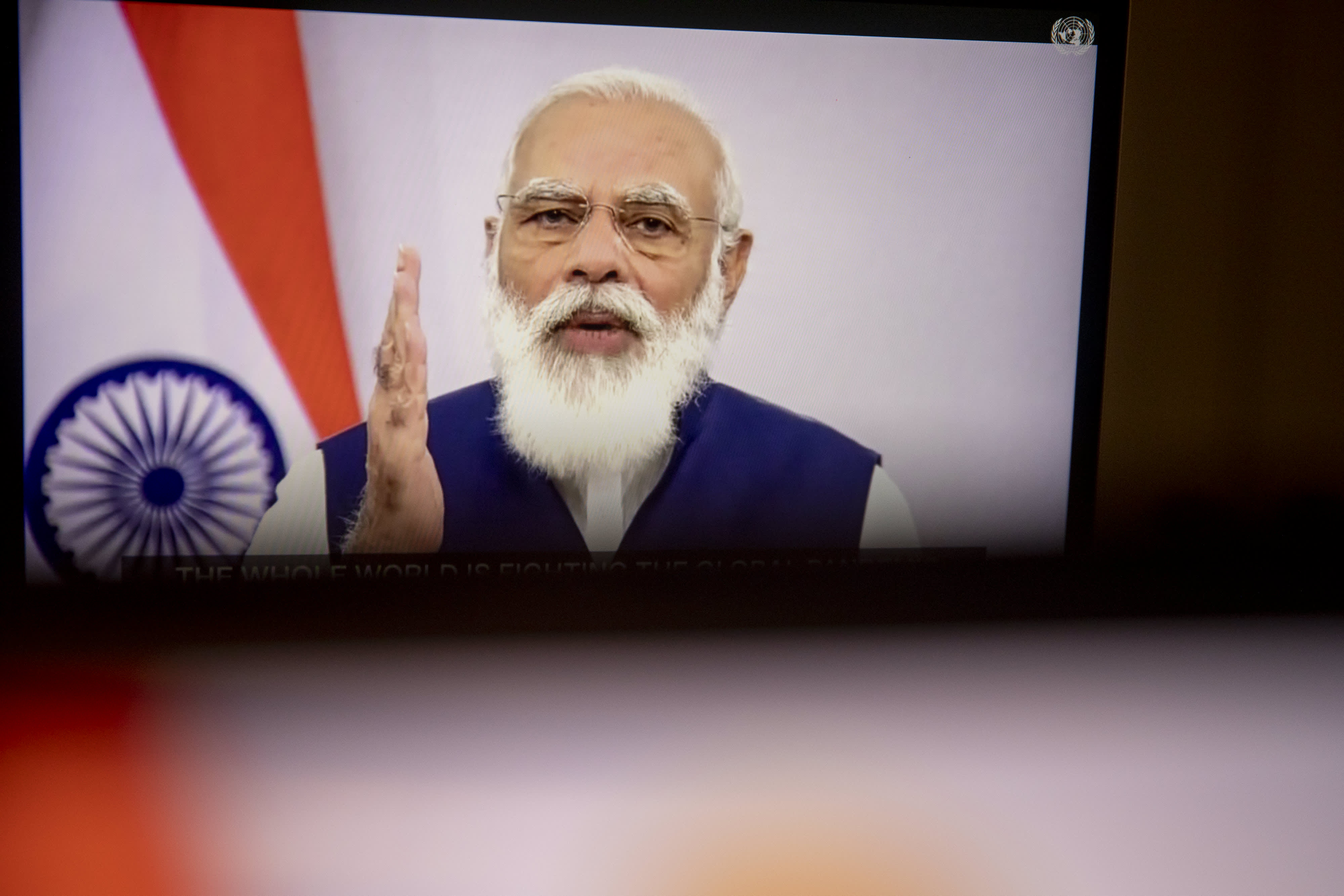Narendra Modi, the Prime Minister of India, speaks during the virtual United Nations General Assembly on Saturday, September 26, 2020.
Daniel Acker | Bloomberg | Getty Images
The government of India plans to introduce a bill in the Chamber of Deputies that will ban private cryptocurrencies like bitcoin and create a national cryptocurrency.
The so-called “Cryptocurrency and regulation of the official digital currency note” moves “to create a facilitating structure for the creation of the official digital currency to be issued by the Reserve Bank of India.”
In addition, “the project also aims to ban all private cryptocurrencies in India, however, it allows certain exceptions to promote the underlying technology of cryptocurrency and its uses.”
Bitcoin’s value jumped more than 20% to $ 38,566 on Friday after Elon Musk changed his personal Twitter bio to #bitcoin.
This is not the first time that Indian lawmakers have taken such a strong position on cryptocurrencies. In 2018, an Indian government panel recommended banning all private cryptocurrencies and proposed up to 10 years in prison for offenders.
In the same year, then India’s finance minister, Arun Jaitley, said: “The government does not recognize cryptocurrency as a legal tender or currency and will take all measures to eliminate the use of these crypto assets to finance illegitimate activities or as part of payment system. “
Many countries – including the United States, China, Japan, Canada, Venezuela, Estonia, Sweden and Uruguay – have explored the development of their own digital currencies.
However, there are significant differences between national digital currencies and private cryptocurrencies, such as bitcoin. Cryptocurrencies like bitcoin are decentralized, while national digital currencies are usually centralized.
